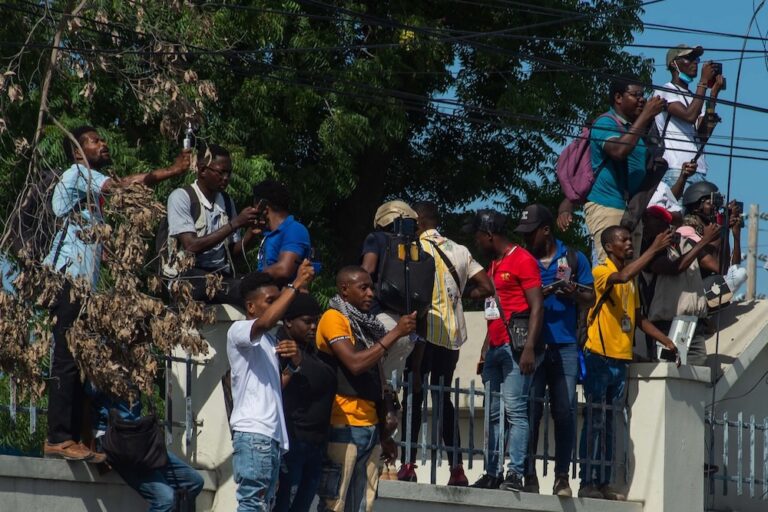After a group of women working for state-owned broadcaster RTNH made allegations of sexual harassment against its director-general, four of them were fired on the grounds of defamation and insubordination.
This statement was originally published on rsf.org on 23 December 2014.
Reporters Without Borders calls for a thorough investigation into the allegations of repeated harassment that two women journalists and five other female employees at Haiti’s state-owned radio and TV broadcaster RTNH have made against its director-general.
In an open letter to the ministers of culture and women’s affairs on 28 November, journalists Deborah Jean and Stéphane Eveillard and the five other employees accused the director-general of repeated acts of sexual and psychological harassment, abuse of authority and arbitrary dismissal.
The letter said he “uses his position as director-general to persecute, humiliate and try to objectify almost all the women working at RTNH who refuse to have intimate relations with him.”
After the letter’s release, Jean and three of her colleagues were fired on the grounds of defamation, insubordination and seriously damaging the reputation of RTNH and its director-general.
“We are concerned about the grave allegations made by these RTNH employees and we urge the authorities to conduct an independent, impartial and thorough investigation”, said Claire San Filippo, the head of the Reporters Without Borders Americas desk. “Haiti’s women journalists must be able to work in an environment that is safe and free of any discrimination and violence.”
Journalist Liliane Pierre-Paul, the president of the National Association of Haitian Media, told Reporters Without Borders that the number of women working for Haitian media has increased in recent years but they still face many challenges.
“The road is very long for women who want to become professional journalists in Haiti”, she said. “They have to face a lot of reticence on the part of their families and significant smear campaigns due to discrimination against women. All these factors prevent women from advancing in the media where they work.”
There are still many more men than women working in the media, especially at the higher levels, she said. Hailing the courage of the RTNH employees, Pierre-Paul added: “There are probably many more cases of psychological and sexual harassment, but most do not come to light and are suffered in silence. Publicly denouncing this problem is very brave and may encourage other women to do the same, so that it does not recur.”
More than half of the 977 women journalists polled worldwide by the International Women’s Media Foundation for a 2014 report said they had been the victims of sexual harassment. Of these acts of harassment, 42 percent took place in the office where they worked and were perpetrated by colleagues or superiors.
The UN Plan of Action on the Safety of Journalists and the Issue of Impunity stresses the importance of taking a gender-sensitive approach when considering measures to address the safety of journalists.
Haiti is ranked 47th out of 180 countries in the 2014 Reporters Without Borders press freedom index.


